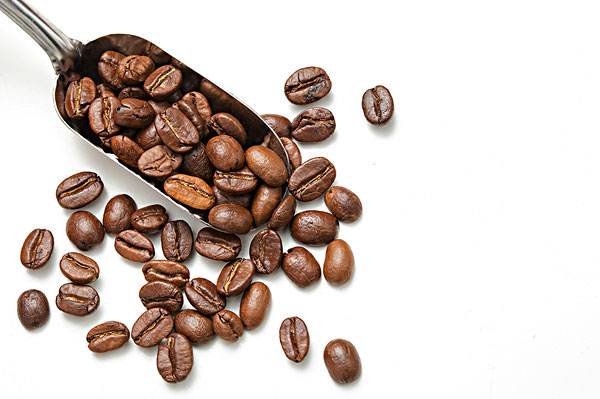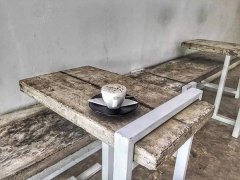Latin American coffee growing region, Latin American coffee taste
Follow the caf é (Wechat official account vdailycom) and found that Beautiful Cafe opened a small shop of its own.
Latin America is famous for its coffee production and export volume, ranking first in the world. In 1979, coffee production in Latin America was 3,264,000 tons, accounting for about 65.6 percent of the world's total output, and coffee exports were 2.217 million tons, accounting for about 60 percent of the world's total exports; coffee export income was more than 7.10000527 billion US dollars, accounting for about 8.8 percent of Latin America's total export income, making it the most important source of foreign exchange earnings in the region besides oil exports. Therefore, coffee is praised as the "green gold" in America. At present, coffee is produced in more than 20 countries in Latin America, with a planting area of 5.463 million hectares, accounting for 57% of the total coffee planting area in the world. Brazil is the largest coffee producer in Latin America and the world, and is known as the "coffee kingdom". In 1979, Brazil produced 1.295 million tons of coffee, accounting for 26 percent of the world's total output, ranking first in the world. In the same year, Colombia produced 762,000 tons of coffee, accounting for about 15.3% of the world's total output, second only to Brazil. Together, the annual coffee production of Mexico and six Central American countries is about the same as that of Colombia.

[Jamaica (Jamaica)]
When it comes to Jamaica, we immediately think of "Blue Mountain" coffee. Rare and expensive blue mountain beans, originally from the Wallensford Coffee Garden, have now expanded to the Blue Mountains, which are more than 1,000 meters above sea level. as long as the tree species and treatment procedures of the estate meet certain standards, the government will issue a guarantee to allow the use of the name "Blue Mountain".
It used to be the protagonist of coffee mythology, but many people think that the legendary characteristics-rich aroma, complete texture, perfect combination with even and palatable sour taste-are no longer there, and the beautiful sour taste that existed 15 years ago can only be found in memories.
In spite of this, its price still goes up. In Taiwan, the retail price of guaranteed raw beans is usually more than 2000 yuan per kilogram. In the market for raw beans, which are commonly packed in gunny bags, blue mountain beans that insist on barrel packaging show their extraordinary price.
The term "Jamaica High Mountain" refers to coffee beans grown in other mountains less than 1,000 meters on the island, which are of relatively ordinary quality and have a mild texture and sour taste. As for "Blue Mountain Blend" or "Blue Mountain Style" coffee, it is usually a combination of good Colombian beans, intended to imitate the taste of Blue Mountain, and has nothing to do with Jamaica. You won't find any real blue beans in Blue Mountain coffee.
[Dominican Republic (Dominican Republic)]
Beans from the Dominican Republic are often called "Santo Domingan" (their old country name), and the coffee plantations there are mainly around the mountains in the middle of the island.
There are four kinds of washed alpine coffee on the market: Cibao, Bani, Ocoa and Barahona. The latter three are especially praised. The sweet taste of soft ripe fruit is very similar to that of Haitian coffee, while Balahona has a high acidity and a thick taste of typical Caribbean beans, which is close to the Jamaican mountains in quality and characteristics. Baking to medium depth best highlights their sweetness.
[Puerto Rico (Puerto Rico)]
Beans, named after Yauco Selecto, are the best example of Caribbean beans. They are rich in texture, balanced in taste, gentle but complex and deep. Deep-baked Caribbean beans do not have the rough burning taste common in other deep-baked beans and are suitable for filter kettles (Plunger or French Press) and other cooking methods that have been soaked for a long time.
Important Notice :
前街咖啡 FrontStreet Coffee has moved to new addredd:
FrontStreet Coffee Address: 315,Donghua East Road,GuangZhou
Tel:020 38364473
- Prev

Flavor description characteristics of coffee bean varieties in El Salvador information of producing areas
Communication of professional baristas Please pay attention to the coffee workshop (Wechat official account cafe_style). The coffee grown in El Salvador is 100% Arabica coffee and grows in mountainous and volcanic slopes rich in organic fertile soil. El Salvador produces the world-famous Bourbon variety, which is highly appreciated by coffee connoisseurs all over the world. Especially
- Next

How to plant coffee beans in El Salvador green hill manor? description and distribution of historical varieties and flavors
For the exchange of professional baristas, please follow the Coffee Workshop (official Wechat account cafe_style) on El Salvador's Green Hills Manor, which has been growing coffee for more than 150 years and is currently managed by the Alvarez family, which has been growing coffee in El Salvador for more than a century. The coffee plantation of Green Hills Manor is located on the lush green hills of Santa Ana.
Related
- Detailed explanation of Jadeite planting Land in Panamanian Jadeite Manor introduction to the grading system of Jadeite competitive bidding, Red bid, Green bid and Rose Summer
- Story of Coffee planting in Brenka region of Costa Rica Stonehenge Manor anaerobic heavy honey treatment of flavor mouth
- What's on the barrel of Blue Mountain Coffee beans?
- Can American coffee also pull flowers? How to use hot American style to pull out a good-looking pattern?
- Can you make a cold extract with coffee beans? What is the right proportion for cold-extracted coffee formula?
- Indonesian PWN Gold Mandrine Coffee Origin Features Flavor How to Chong? Mandolin coffee is American.
- A brief introduction to the flavor characteristics of Brazilian yellow bourbon coffee beans
- What is the effect of different water quality on the flavor of cold-extracted coffee? What kind of water is best for brewing coffee?
- Why do you think of Rose Summer whenever you mention Panamanian coffee?
- Introduction to the characteristics of authentic blue mountain coffee bean producing areas? What is the CIB Coffee Authority in Jamaica?

